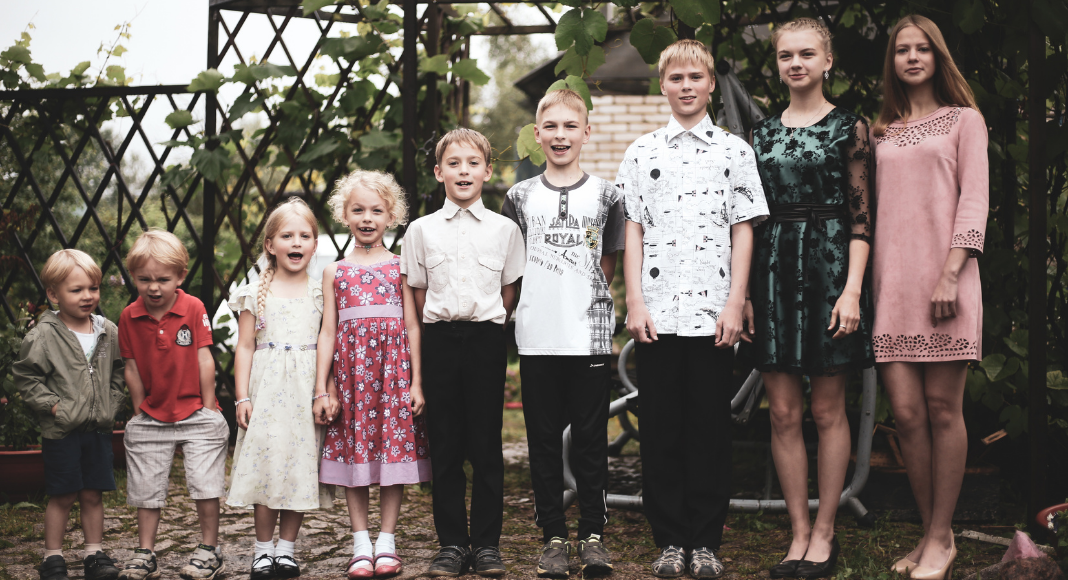 If you have ever been to counseling, you know that your childhood will be brought up to talk through. Having deeply dug into my own raising and how my environment, belief systems, and the care given to me shaped who I am today, I want to give my kids the best I can during their childhood. That doesn’t mean the best toys or vacation experiences. I want them to fumble through finding themselves, not me telling them who they are. I want them to explore the world around them and sometimes fail.
If you have ever been to counseling, you know that your childhood will be brought up to talk through. Having deeply dug into my own raising and how my environment, belief systems, and the care given to me shaped who I am today, I want to give my kids the best I can during their childhood. That doesn’t mean the best toys or vacation experiences. I want them to fumble through finding themselves, not me telling them who they are. I want them to explore the world around them and sometimes fail.
I am raising three children that have three very distinct personalities. They are definitely a complicated combination of their Dad and me mixed in with some random traits from their aunts and grandparents. Instead of pointing them towards those people to identify who they are, I question “How can I best help them according to their personality?”
The Enneagram is a personality typing tool we can use in parenting. Narrow down your child’s very distinct personality to nine different types and you’ll feel like you unlocked the treasure chest to effectively guiding them into the years beyond childhood.
I’m going to break down each of the nine types of personalities and give you ways I think would be helpful to encourage, guide, support, and even discipline your kid. First, you’re going to need to know their personality type. Read my Enneagram Types for Kids post to get an idea of your child’s type.
How to be the best parent for your type (insert a number) child:
Type 1: Perfectionist
Don’t force them to go with the flow. This child will look at the flow and question, “How can the flow be better? Where do I belong in the flow?” When you see them not getting along with kids on the playground, give them space to figure it out, but also talk about it later. Choose your words carefully in redirecting them when they want to blame others for not going along with their ideas. It’s in my personal experience with a type 1 daughter that she doesn’t like to ever be called out in a group of people. Reach their hearts by one-on-one conversations where you listen more than talk.
Type 2: Helper
When your type 2 brings home an injured animal (because they will, trust me), amuse them. Let them wrap up the dead cricket’s broken leg with tape. Encourage their care and compassion. Their biggest fear is to be unworthy of being loved. Remind them often that you love them through words and actions too. They’re going to be doing a lot of giving to others, so it’s nice to give back to them as well with some intentional time together or going out of your way to take something off their plate in an act of service.
Type 3: Achiever
Get ready to hang up some straight A report cards on the refrigerator! Type 3s are going to strive and work hard, and keep pushing for more as long as they are encouraged. Try telling them they’re doing too much, and they’ll probably add more to their plates. Don’t be surprised if you see your type 3 starting to slack off in life if they feel defeated by not “winning” or not supported by a teacher or friend group. I think one of the greatest gifts to give a 3 is your honesty and constant support. Growing up, people might be afraid to bring down the ego of a dominant 3. You can show them how this can be done in love and growth comes from accepting critique.
Type 4: Individualist
Your type 4 might give you whiplash in their younger years going between sweet and reserved to overdramatic all out pitching a fit over who knows what. As a parent, you’re going to bring balance to your child’s environment. If they’re overwhelmed, remove them from the situation and take a walk outside talking out their feelings. They could fear that they will never find their gifting or calling for life. Encourage them to explore the world and remind them they don’t have to fit into a box. Let them dye their hair blue and get the nose piercing. Easy for me to say as I’m not raising a type 4, but take heart that you might be raising a future actress or world influencer with their charismatic ways.
Type 5: Thinker
Like a type 4, the type 5 is seeing where they fit into the world around them. However they aren’t very good at assessing their feelings. Give them the language as you listen to them. Don’t settle for the “everything is fine” responses. Push them to explore “What specifically made your day fine by bringing a smile to your face?” Piece by piece, they are fitting the world together, and piece by piece you are helping them be whole by showing them they are needed, capable, and competent. Take the time to let your Type 5 work alongside you and they will carry a worth into adulthood that would have been missed if you just kept saying “I got it.” My type 5 makes some major, like fire burning, mistakes in the kitchen but that’s a place where he thrives! So I eat the burned chicken, scrape the pans with steel wool, and encourage him in what he has done, not what he could do better.
Type 6: Loyalist
They are going to have the most friends! Being loyal is so attractive in relationships, but could also be overwhelming as they aren’t fully trusting but rather more suspicious in new situations. Check in with them often, being their number one support, to see how their interactions are going with friends. Trust me; they have already thought of every scenario, they just need someone who amuses their thoughts. Being highly influenced by others, they are trying to create security in their environment. Teaching them that they can be at peace with themselves despite the changing world is a goal worth reaching for in loving and supporting your type 6.
Type 7: Enthusiast
You’re going to have to take a lot of deep breaths when responding to your type 7 child if you aren’t a type 7 yourself. They are always wanting to go somewhere, so find groups or activities for them to go to support their need to “get out” without making you their #1 entertainer. This child will be so enthusiastic about opportunities and invitations that they will take it pretty hard when you tell them, “No.” Pretty sure I wore my parents down with the “But whyyyyy…” questions because I never wanted to miss out on anything “everyone else was doing.” Giving me an explanation and even an alternative instead of a single word negative response has truly helped me as an adult to reroute and keep pushing ahead with life even when I don’t get the answers I want. Every “No” is going to be a challenge to a type 7, but that doesn’t mean you want them to look at you as the challenger. Reroute together.
Type 8: Challenger
When you want to tell your type 8 child that they could “argue with a brick wall,” refrain. They need a good challenge, so give it to them! Enroll them in sports, music or acting class, or some other high energy activity. They are going to fear being controlled by others. If you’re constantly giving them boundaries, expect them to find a way around them during their most formative years. The challenger in them isn’t out to just “be right” but to “find right.” These will be the future justice seekers, lone dog supporters, and the ones using their voice the loudest. Don’t silence them.
Type 9: Peacemaker
Seeking peace, at almost any cost, they can wear themselves down. Unlike a type 8 who has the highest energy, type 9 is easily drained of their energy when peace doesn’t reign. More in touch with their emotions than they realize, you will see a fire rise up in them when they believe someone or something they care for is under attack. 9s have a little bit of all the types in them, so you might see that play out in their activity picks. “A jack of all trade and master of none.” You can teach them that they can pursue things just for fun or to learn a part of themselves that they can carry on as an adult. Your 9s are going to want to stick close to you, forever probably. Being too quick in pushing them out of the home, you could stunt their growth.
When I wrote how to type your kids, I thought my oldest was a type 8 like me. After being around some men who were healthy type 5s, I noticed a lot of similarities in them with my son! This is why I never will encourage a parent to vocally type your child. You could be wrong and you will be doing more harm than good.
I did not offer gender specific examples in typing children, because gender roles in personalities can be more environmentally constructed than we realize! Quick example: the type 8 female could use the same language as a type 8 male, but she could be looked at as “bossy” as a negative, when the male is “asserting dominance” as a positive. Use the Enneagram for your own benefit in guiding your children as you see fit. I think you’re the perfect parent for them!
















